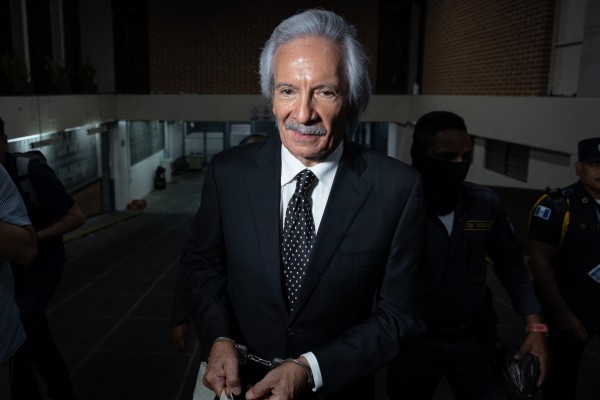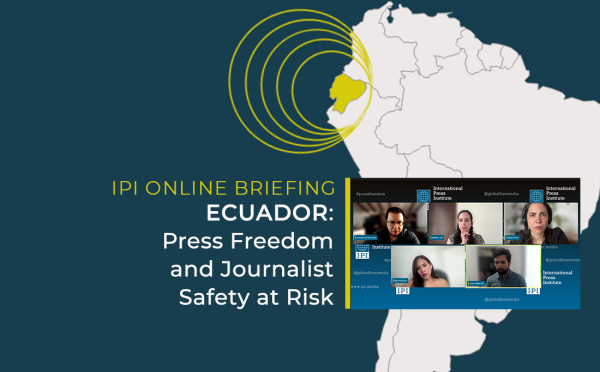The International Press Institute today expressed concern over a reported lack of progress in the investigation into the October 2012 arson attack on Bolivian radio journalist Fernando Vidal. IPI urges Bolivian authorities to bring those responsible for the horrific incident to justice without further delay.
Vidal, the former director of the Radio Popular radio station in Yacuiba, Bolivia, just north of the Argentinean border, was targeted by a group of hooded attackers who doused him in gasoline before setting him and the station alight during a live broadcast in 2012.
Local sources, including Vidal’s son-in-law, Esteban Farfán, told IPI that investigations into the attack had produced no new developments since January.
“Sometimes the government devotes special attention to certain cases in order to find those responsible and is usually successful. In this case, however, their efforts have been reduced to media statements and nothing more,” Farfán, also a journalist at Radio Popular, said.
Farfán added that Vidal had been critical of politicians in the Gran Chaco province and indicated his belief that the attack against him—and the corresponding impunity—may have been politically motivated.
Farfán also told IPI that a municipal judge ordered the release of one of the suspects because of a ruling that cleared him of a separate armed robbery charge, which occurred before the attack on Radio Popular. The warden of the prison where the suspect was being held then released the suspect without verifying that he had been detained for the attack on Vidal, claiming instead that he had confused the cases.
Vidal was interviewing two women in connection with a story about drug trafficking between the Bolivian and Argentinean border at the time of the attack. He suffered second and third degree burns to nearly 40 percent of his body, underwent 12 surgeries, and spent nearly two months in hospitals in both Bolivia and Argentina before returning home in December 2012. A station technician, Karen Delgado, was also wounded in the attack. Witnesses said the station was completely burned out.
IPI and other organizations contributed to Vidal’s medical expenses, which amounted to nearly €8.000.
“By delaying the investigation and prosecution of this crime, Bolivian authorities are effectively sending the message that attacks on journalists will be treated with impunity. Unfortunately, we know from experience that such impunity only fuels the cycle of violence even further,” IPI Press Freedom Manager Barbara Trionfi said. “The Bolivian state is responsible for the safety of all reporters working within its borders and must find and bring to justice those responsible for the attack on Fernando Vidal,” she added.
According to the Spanish news website elEconomista.es, five people had been detained for attempted murder and burglary in connection with Vidal’s attack, but so far no charges have been filed. Vidal had earlier expressed his frustration that a judge had ordered the release of one of the suspects without charges.
According to El Pais, Vidal was the second journalist assaulted in Yacuiba in recent years and was also the second journalist attacked in the area while reporting. In 2008, local journalist Carlos Quispe died in the nearby locality of Pucarani Paceña from injuries caused by a mob of protestors.
Statistics show that violence against Bolivian journalists has increased in recent years. A report from the Knight Center for Journalism in the Americas showed an alarming increase in attacks against journalists between 2011 and 2012.
But neither the government’s failure to find his attackers, nor the challenges of recovering from third-degree burns at age 71 have stopped Vidal. “From the moment we returned to Bolivia in December, he couldn’t help but return to the microphones in spite out of suggestions that he should rest,” Farfán said of his father-in-law. “He hasn’t missed a day on the radio since.”


